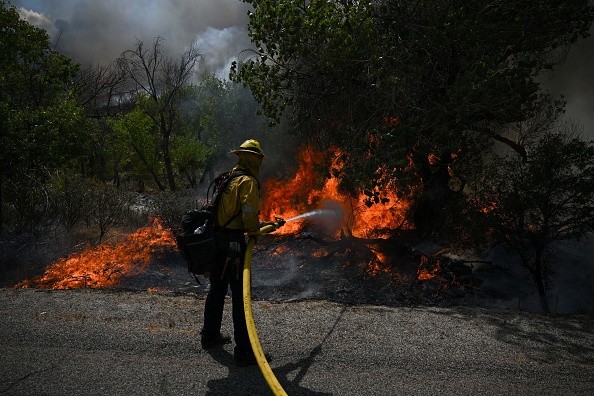United Nations Secretary-General António Guterres stressed the importance of climate action and mitigation at the U.N General Assembly press conference. He urged countries to commit to emissions reductions and help poorer countries with climate action.
The report said that the massive flooding in Pakistan was brought about by the inadequacy of global solutions to the climate crisis, showing devastating loss of life and massive damage to infrastructure.
Moreover, he added that greenhouse gas emissions come from the wealthiest countries because of climate change, but the devastating effects fall on the poor countries.
In a statement, Guterres stressed that wildfires and heatwaves would worsen and break records with alarming frequency. He added pressing environmental issues in different countries: heatwaves in Europe, severe droughts in China, Africa, and the U.S., and the colossal floods in Pakistan.
Climate change

Climate change has been a pressing environmental concern. The World Health Organization (WHO) revealed that climate change impacts human lives. It added that between 2030 to 2050, it is expected that 250,000 additional deaths per year can be seen from heat stress, diarrhea, and malnutrition.
According to WHO, the total cost of damage to human lives is estimated to reach S$ 2-4 billion per year by 2030.
In the Global Risk Report 2020, the World Economic Forum announced that the top threats for the immediate future were extreme weather and climate action failure that could lead to rising global sea levels.
Moreover, NASA Global Climate Change stressed that the climate changes had been driven by human activities and emissions of greenhouse gases. Scientists are alarmed that the effects of climate change are emerging faster than they predicted.
The future effects of global climate change in the U.S. based on the Third and Fourth National Climate Assessment Reports are:
- More droughts and heatwaves
- A continued increase in global temperature
- Precipitation patterns changes
- Wildfire
- Rise of Sea level
- More intense hurricanes
Furthermore, the World Wildlife Fund (WWF) also revealed that animals in their ecosystems are affected. The habitat or places of animals are threatened, causing damage to wildlife, from their reproduction, habitat, biodiversity, and food sources.
What you can do
In an article, National Oceanic and Atmospheric Administration (NOAA) said that protecting the planet starts with humans. It suggests things to protect the environment
- Conserve water.
- Buy less plastic in shops.
- Plant trees.
- Prefer non-toxic materials at home or office
- Use long-lasting light bulbs to reduce greenhouse emissions.
Cooperation among the government, environmental groups, and communities are vital to address the pressing issue of climate change. As the global temperature increases faster than scientists expected, the effects of climate change are also present.
Read also: Nature News
© 2025 NatureWorldNews.com All rights reserved. Do not reproduce without permission.





